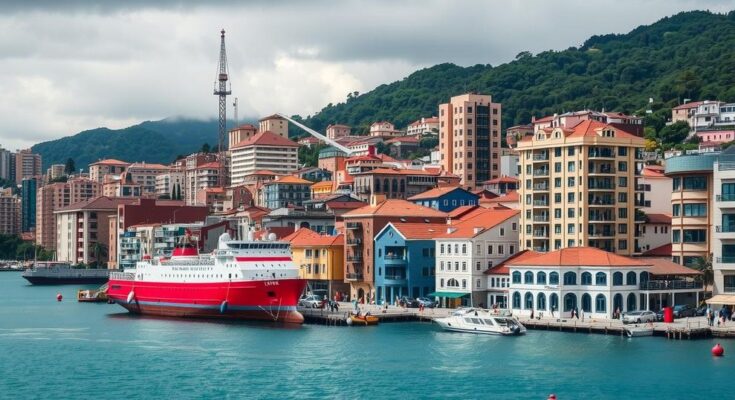Lebanon faces a potential path toward stability as Hezbollah, Iran, and Syria’s influence wanes. The election of Joseph Aoun as president could mark a turning point, contingent on his ability to confront corruption, disarm Hezbollah, and foster unity. His leadership may determine whether Lebanon can rebuild and strengthen its institutions amidst historical challenges.
Lebanon finds itself at a crucial juncture as the waning influence of Hezbollah, Iran, and Syria presents a unique opportunity for national revival. The election of General Joseph Aoun as president raises the question of whether he will usher in a transformative era for Lebanon or merely maintain the status quo among entrenched political elites. Historical parallels drawn with former President Fouad Chehab suggest a potential for leadership that prioritizes national stability over sectarian divisions and foreign allegiances.
The recent military setbacks faced by Hezbollah, along with the diminishing grip of Iran and the Assad regime in Syria, have created an environment for potential political consensus within Lebanon’s fragmented political landscape. As President Aoun prepares to navigate the complex terrain shaped by decades of strife, his administration’s actions in disbanding the militia’s armed strength will be critical.
However, the challenges ahead remain formidable. The president must contend with the legacies of a corrupt political system that has left Lebanon vulnerable and impoverished, stirring fears that entrenched elite interests may obstruct genuine reform efforts. The backdrop of Lebanon’s governance has been marked by a deterioration of state structures, exacerbated by regional geopolitics and the fallout of the Syrian conflict.
Moreover, the call for a policy of neutrality and improved ties with Arab nations marks a significant shift, but Aoun’s ability to actualize this vision will determine the nation’s path forward. The composition of his government and key appointments will provide insight into whether Lebanon is on a trajectory towards healing or remains ensnared in established political rivalries.
As the new administration is formed, the international community, including key regional actors, will be closely observing the developments, seeking assurance that their support for Lebanon will translate into effective governance, stability, and economic recovery. Ultimately, the possibility of restoring peace, security, and growth in Lebanon hinges on decisive leadership that can transcend the age-old sectarian and political divides.
The dynamics of Lebanon’s political landscape are deeply influenced by multiple factors, including internal communal divisions and external pressures from regional powers, particularly Iran, Hezbollah, and Syria. Hezbollah’s status as a significant political and military actor has traditionally complicated efforts toward national unity and efficient governance. As external threats and regional shifts continue to evolve, Lebanon’s governance has often been obstructed by nostalgias and loyalties to external entities, thus complicating pathways to reform and stability. General Joseph Aoun’s recent election could pave the way for profound change if he navigates these challenges effectively, potentially severing the historically entrenched ties to groups like Hezbollah and moving towards a more autonomous and stable Lebanon.
In conclusion, Lebanon stands at a pivotal moment marked by the weakening of Hezbollah, Syria, and Iran. The election of General Joseph Aoun as president presents an opportunity to negotiate a formidable shift towards national stability and renewal. However, the success of his presidency will depend largely on his ability to address Lebanon’s entrenched political corruption, pave the way for a unified government, and negotiate the disarmament of Hezbollah. The international community’s support may play a critical role in this endeavor, as Lebanon seeks to reclaim its agency amid the complexities of external influences and internal dissent.
Original Source: www.arabnews.com




